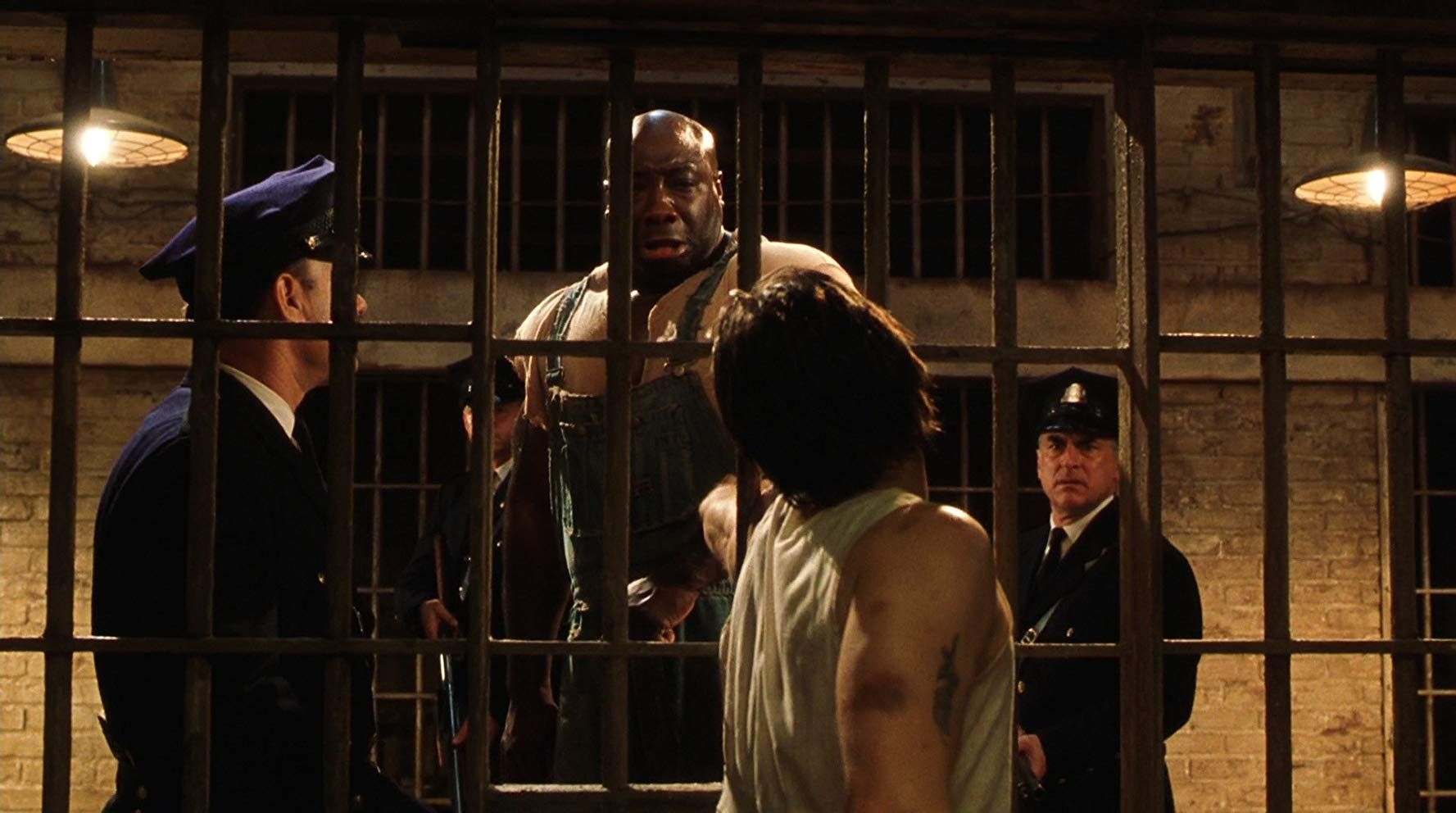When The Green Mile first hit theaters in 1999, no one expected a death row drama to become one of the most spiritually profound and emotionally enduring films of its era. Based on the novel by Stephen King and directed by Frank Darabont — who also brought us The Shawshank Redemption — the film wove together themes of injustice, miracles, and moral reckoning in a way that still resonates deeply with audiences more than two decades later.
At the center of the story is Paul Edgecomb (Tom Hanks), a prison guard working on death row in the 1930s. His job is to oversee executions with dignity and professionalism. But everything changes with the arrival of John Coffey (Michael Clarke Duncan), a massive yet soft-spoken Black man convicted of the brutal murder of two young girls. Despite his intimidating appearance, Coffey exhibits a childlike innocence — and more shockingly, an unexplained ability to heal and perform miracles.
What follows is not just a story about crime and punishment. The Green Mile becomes a moral and emotional journey, as the prison staff slowly come to realize that Coffey may be a miracle in human form — a man wrongly accused, carrying the pain of others, and ultimately doomed to die at the hands of a system too blind to see the truth.
The film’s brilliance lies not just in its supernatural elements, but in how grounded and human it feels. Every performance in The Green Mile is layered with emotional complexity. Tom Hanks brings quiet strength to Paul, while Michael Clarke Duncan delivers a performance so sincere and powerful that it earned him an Academy Award nomination. Supporting actors like David Morse, Sam Rockwell, and Doug Hutchison further enrich the story, portraying both the cruelty and compassion that coexist within the prison walls.
Despite its 3-hour runtime, the film never drags. Each scene is carefully crafted to build tension, evoke empathy, and deepen the spiritual undertones that make The Green Mile more than just a prison drama. It’s a reflection on the cost of justice, the nature of suffering, and the miracle of kindness in a broken world.
More than 25 years later, The Green Mile continues to be relevant. In a world still grappling with racism, wrongful convictions, and the ethics of capital punishment, the film feels less like a period piece and more like a mirror. It doesn’t preach, but it asks hard questions: What does it mean to be guilty? Can miracles exist in the darkest places? And what is our responsibility when we witness injustice?
Moreover, the film touches on the burden of memory and guilt. In the final scenes, an elderly Paul reflects on the consequences of executing a man like John Coffey. He’s been granted an unnaturally long life — possibly as a blessing, or maybe a punishment. It’s this final layer that makes The Green Mile so haunting: the idea that some events leave a spiritual scar, never truly healed.
While The Green Mile ends on a powerful, emotional note, it also leaves a door open for continuation. What if there were a sequel? What if Coffey’s gift — or his spirit — had not disappeared, but continued to ripple through time?

In a fictional follow-up, perhaps titled The Green Mile: Echoes of Light, we could revisit Paul Edgecomb in the final days of his life, now well over 100 years old. Still carrying the weight of Coffey’s execution, Paul could meet someone — maybe a child in a hospital or a young prisoner — who shows signs of possessing a similar miraculous gift.
This new character could represent a spiritual rebirth of Coffey’s essence — someone who doesn’t just heal physically, but also emotionally, helping Paul find peace at last. Along the way, Paul might have to protect this new “miracle” from modern forces of exploitation, skepticism, or harm, just as he once tried to protect Coffey from the cruel system of his time.
Such a sequel wouldn’t aim to match the emotional power of the original — because that’s nearly impossible — but rather, to reflect how even the smallest acts of kindness and wonder can echo across generations. It would be a story not of punishment, but of healing, redemption, and legacy.
The Green Mile is one of those rare films that stays with you forever. It makes you cry, it makes you think, and above all, it makes you feel. It reminds us that miracles might exist in the most unexpected people — and that the way we treat them defines who we are.
Whether or not a sequel ever happens, the legacy of The Green Mile lives on. And perhaps, somewhere out there, another story waits to be told — one that continues walking the mile, one miracle at a time.



-1751534439-q80.webp)
-1750991024-q80.webp)

